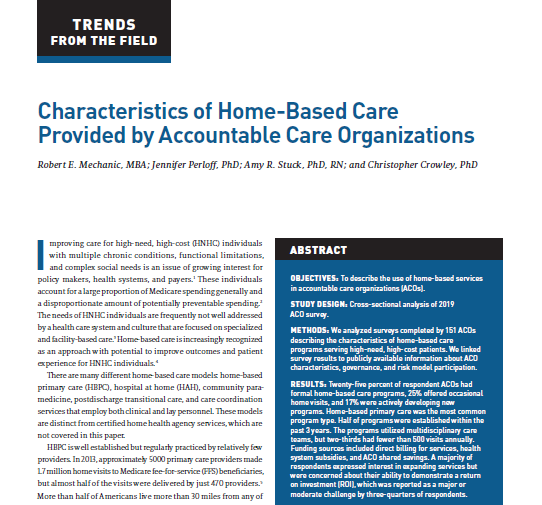Characteristics of Home-Based Care Provided by Accountable Care Organizations
OBJECTIVES: To describe the use of home-based services in accountable care organizations (ACOs).
STUDY DESIGN: Cross-sectional analysis of 2019 ACO survey.
METHODS: We analyzed surveys completed by 151 ACOs describing the characteristics of home-based care programs serving high-need, high-cost patients. We linked survey results to publicly available information about ACO characteristics, governance, and risk model participation.
RESULTS: Twenty-five percent of respondent ACOs had formal home-based care programs, 25% offered occasional home visits, and 17% were actively developing new programs. Home-based primary care was the most common program type. Half of programs were established within the
past 3 years. The programs utilized multidisciplinary care teams, but two-thirds had fewer than 500 visits annually. Funding sources included direct billing for services, health system subsidies, and ACO shared savings. A majority of respondents expressed interest in expanding services but were concerned about their ability to demonstrate a return on investment (ROI), which was reported as a major or moderate challenge by three-quarters of respondents.
CONCLUSIONS: ACOs deliver a diverse array of home-visit services including primary care, acute medical care, palliative care, care transitions, and interventions to address social determinants of health. Many services provided are not billable, and therefore ACO leaders are hesitant to fund expansions without strong evidence of ROI. Expanding Medicare ACO home-visit waivers to all risk-bearing ACOs and covering integrated telehealth services would improve the financial viability of these programs.




